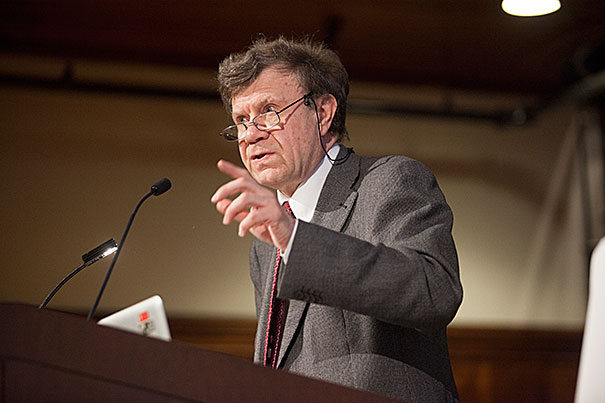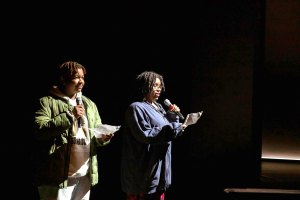Arts & Culture
-

Voice of a generation? Dylan’s is much more than that.
Classics professor who wrote ‘Why Bob Dylan Matters’ on the challenge of capturing a master of creative evasion
-

Holiday treats from the kitchen of Julia Child
Recipes from celebrity chef’s archive at Radcliffe
-

How a ‘guest’ in English language channels ‘outsider’ perspective into fiction
Laila Lalami talks about multilingualism, inspirations of everyday life, and why she starts a story in the middle
-
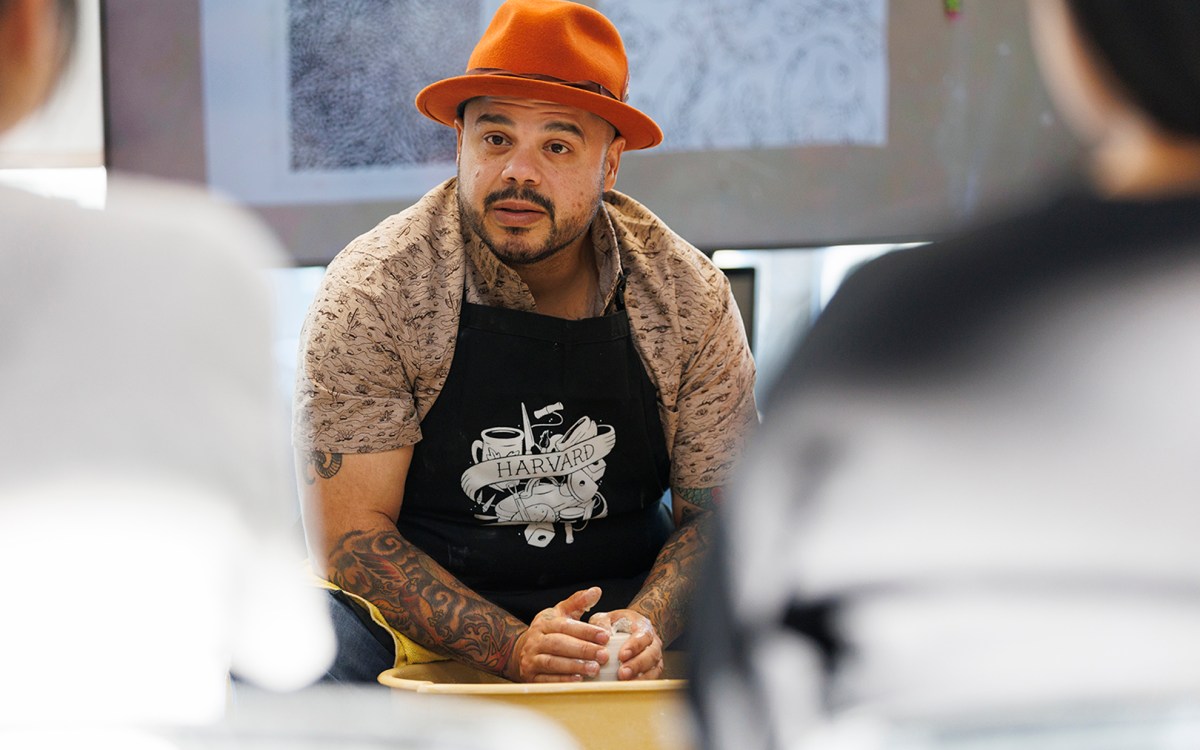
Potter gets fired up about helping students find their own gifts
Roberto Lugo says his art creates conversations and ‘that’s where the magic happens’
-
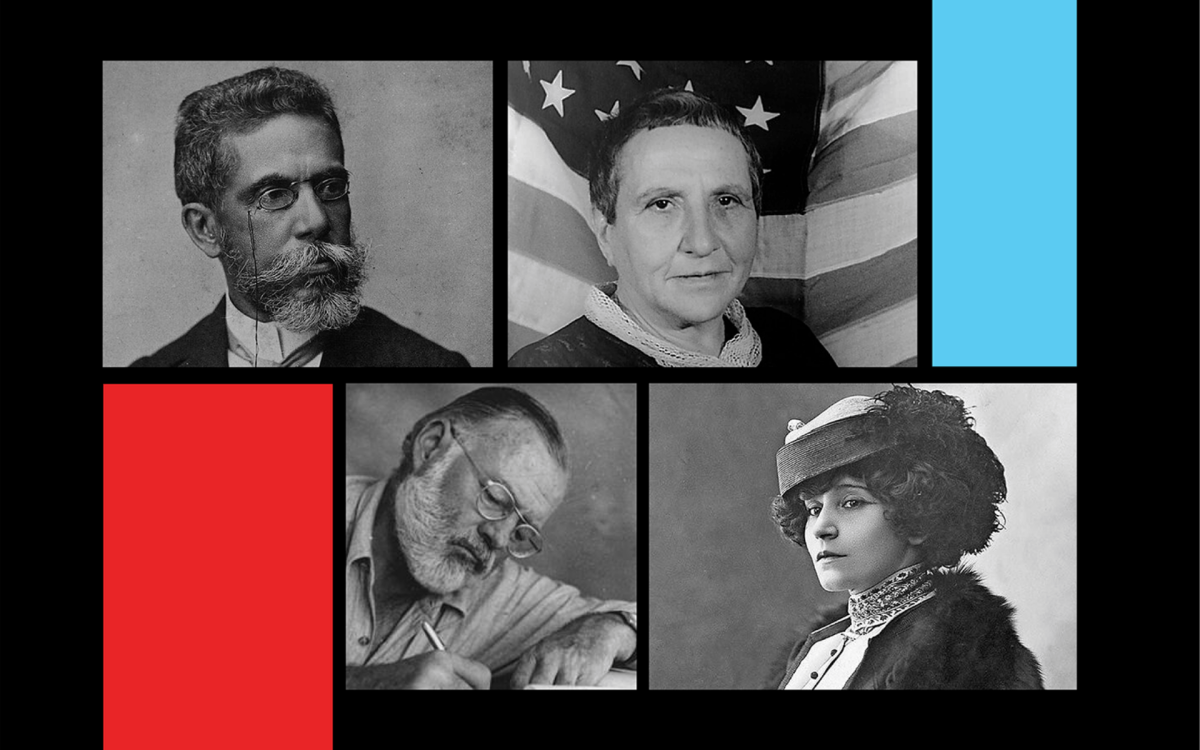
The 20th-century novel, from its corset to bomber jacket phase
In ‘Stranger Than Fiction,’ Edwin Frank chose 32 books to represent the period. He has some regrets.
-
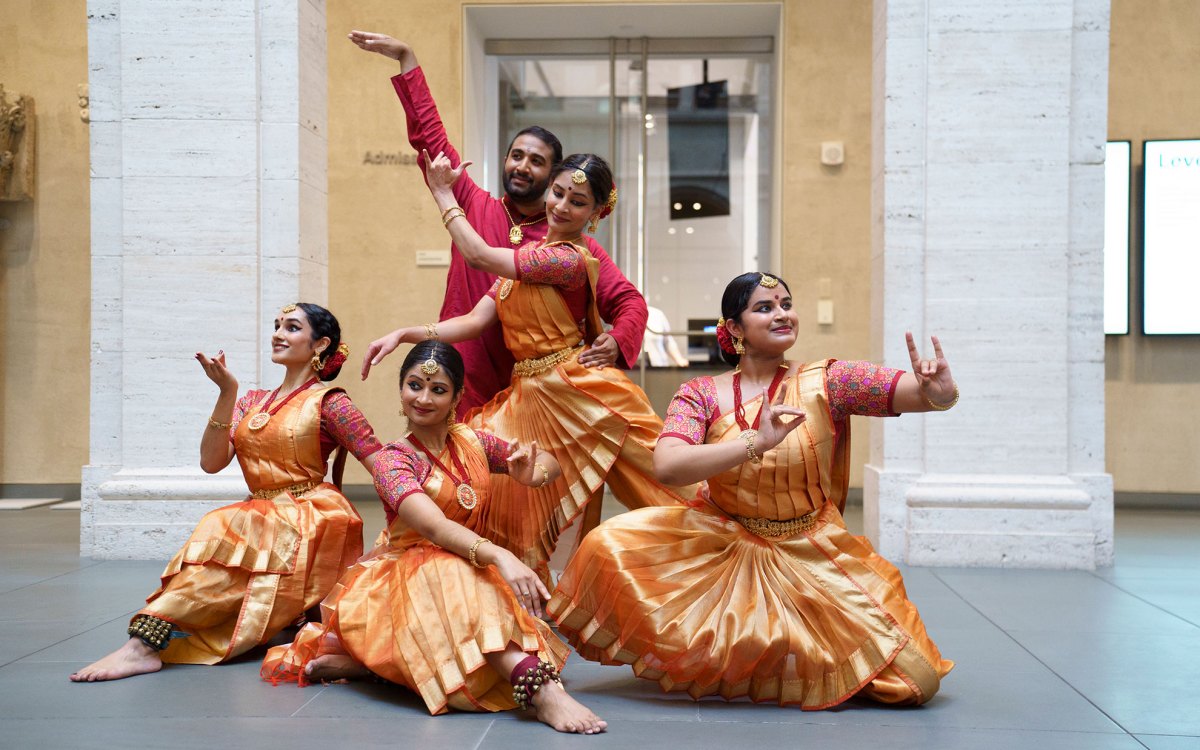
Dance the audience can feel — through their phones
Engineer harnesses haptics to translate movement, make her art more accessible

-
Direct from Broadway
The Broadway star Christine Ebersole shared her advice and some tricks of the trade with three undergraduates during a master class sponsored by Harvard’s Office for the Arts.
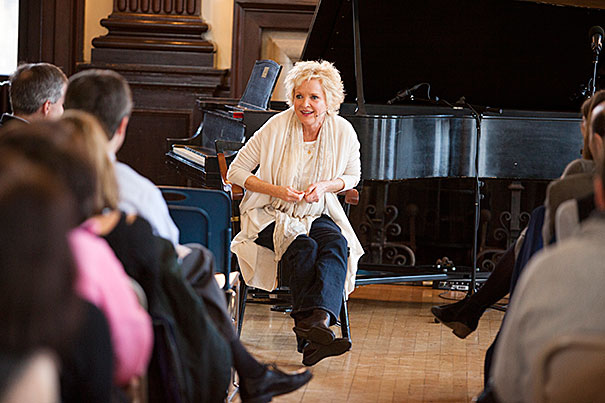
-
Pearls of Persian art
A generous donation by the late Norma Jean Calderwood — philanthropist, autodidact, and keen-eyed collector — brought a millennium’s worth of Islamic art to Harvard, some of which is now on display for the first time at the Arthur M. Sackler Museum.
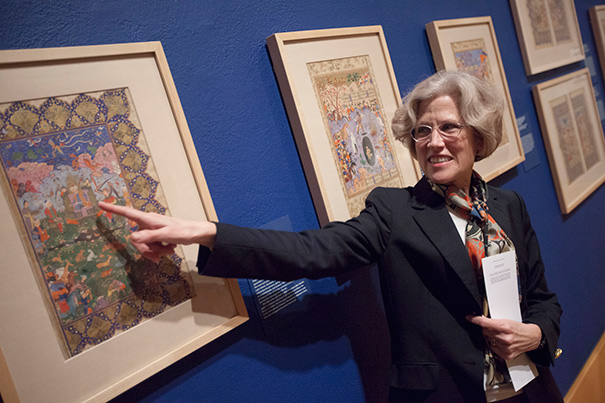
-
On the nature of difference
Harvard College Dean Evelynn M. Hammonds discussed her book “The Nature of Difference: Sciences of Race in the United States from Jefferson to Genomics” before 50 students as part of Wintersession activities.
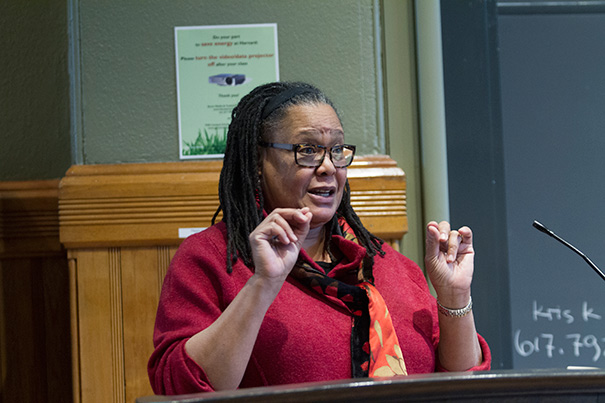
-
Widening the Wheelwright
Every year since 1935, the Harvard Graduate School of Design (GSD) has awarded one of its graduates the Arthur W. Wheelwright Traveling Fellowship, praised by generations of recipients for enriching careers in most cases already under way.
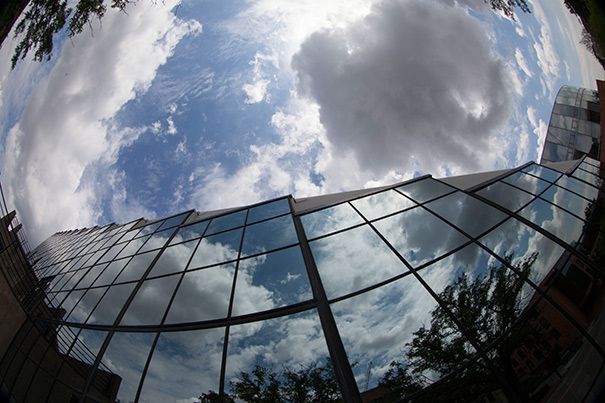
-
A return to the radical
In a discussion at the Radcliffe Institute for Advanced Study, the stage director John Tiffany and Diane Paulus, the artistic director of the American Repertory Theater, said that their new production of Tennessee Williams’ “The Glass Menagerie” will restore some of the work’s unconventionality.
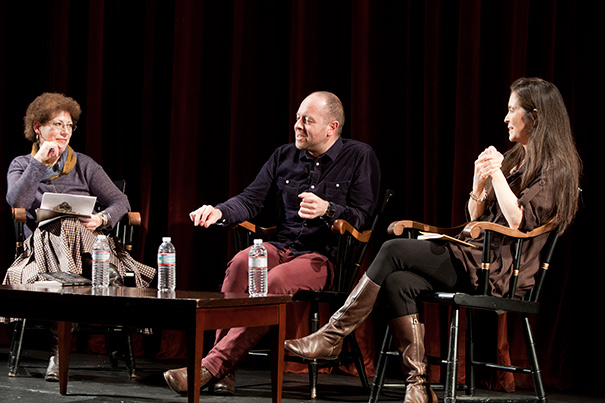
-
‘Pippin’ goes to the circus
Diane Paulus’ newest musical adaptation at the American Repertory Theater, a reworking of the 1970s hit ‘Pippin,’ weaves the element of circus performance into the production. The show continues through Jan.20 at the Loeb Drama Center.
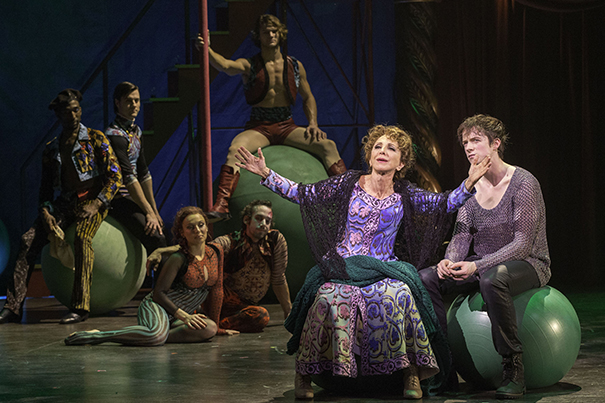
-
Nothing but a breakthrough
The Harvard Film Archive leads off its 2013 screenings with “Nothing But a Man,” a landmark 1964 film by two Harvard graduates.
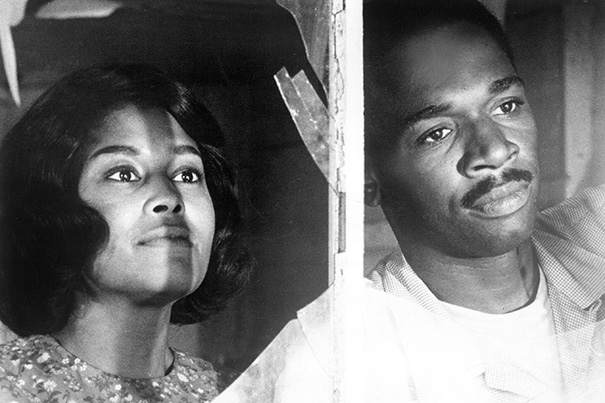
-
The director’s cut
The young director Allegra Libonati stages a new production of the brothers Grimm fairytale “Hansel and Gretel” at the A.R.T. Institute. The show runs through Jan. 6.
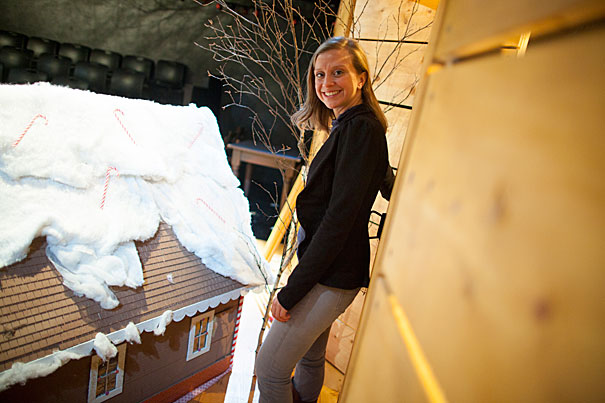
-
He wrote the book of love
A neurologist who teaches at Harvard Medical School ponders love and its complexities in his latest book, “What to Read on Love, Not Sex: Freud, Fiction, and the Articulation of Truth in Modern Psychological Science.”
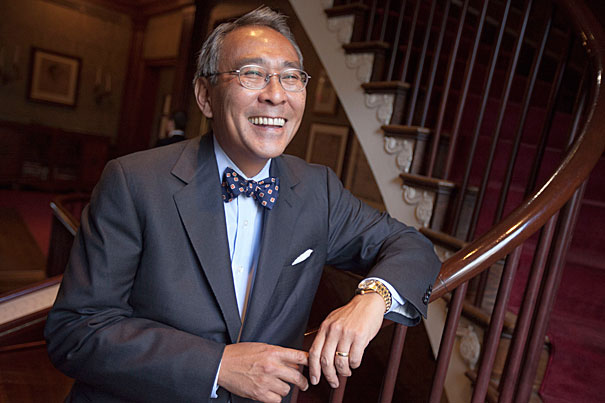
-
Carolling at Memorial Church
Each year in December, Harvard’s Memorial Church presents members of the University community and beyond with the gift of song.
-
A musical gift
Each year, the Memorial Church offers the gift of song to the Harvard and Cambridge communities, with two moving services of carols. The Dec. 17 service is scheduled for 8 p.m.
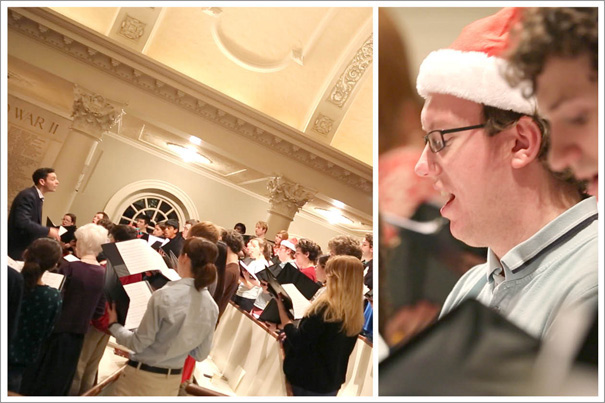
-
A too-short life, examined
D.T. Max, author of a new biography of David Foster Wallace, sat down with professor and critic James Wood to discuss the writer’s legacy and his brief time at Harvard, a catalyst for the breakdown and recovery that inspired much of Wallace’s masterpiece, “Infinite Jest.”
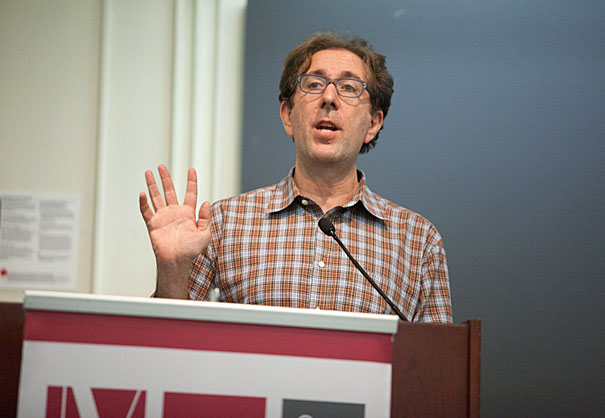
-
The ongoing allure of Tolkien
In a question-and-answer session, Stephen Mitchell, Harvard professor of Scandinavian and folklore, explores the lasting appeal and the inspirations behind author J.R.R. Tolkien’s classic tale “The Hobbit.” Director Peter Jackson’s adaptation of the book for the big screen opens in the United States mid-December.
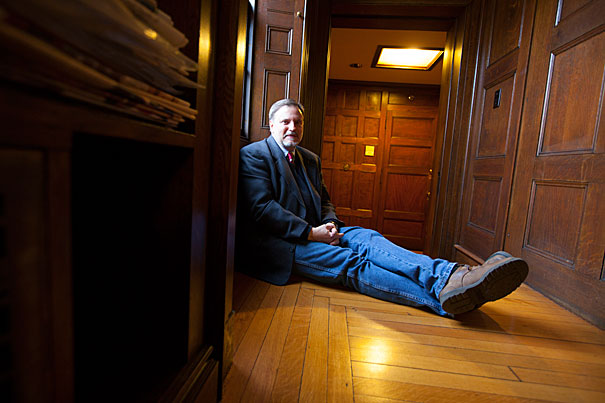
-
Good, but never simple
Delivering Harvard Divinity School’s Ingersoll Lecture at Sanders Theatre, Nobel laureate Toni Morrison discussed concepts of good and evil in her work and that of her contemporaries.
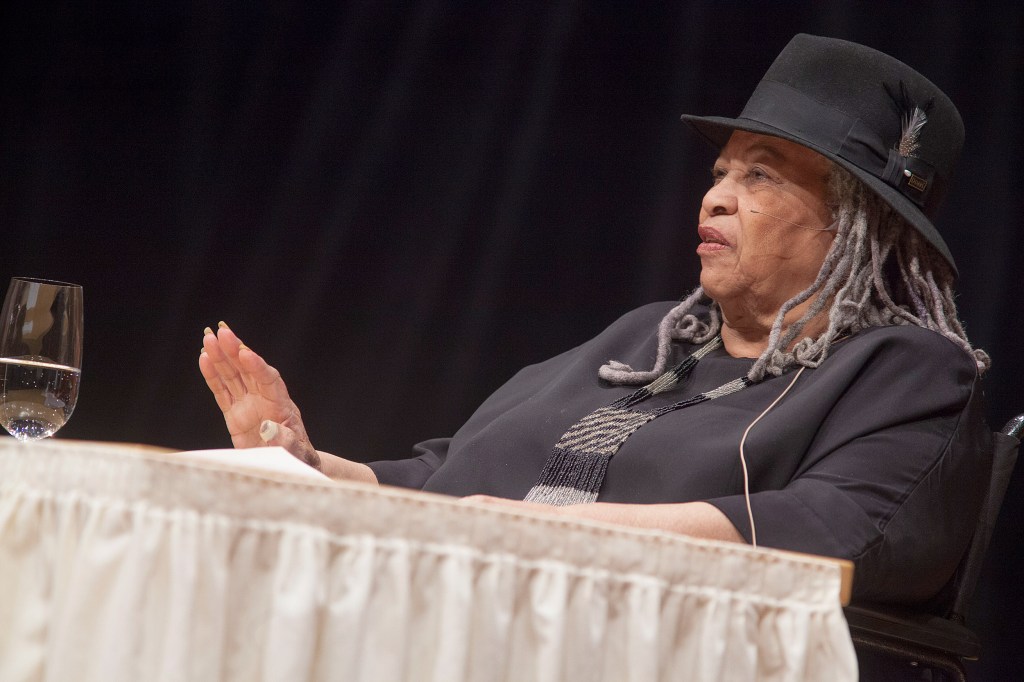
-
Girls who rock out
A film and a discussion at Radcliffe’s Schlesinger Library highlight Girls Rock Camp, which teaches girls and young women during summer sessions to find their inner musicians, shed some inhibitions, and celebrate themselves.
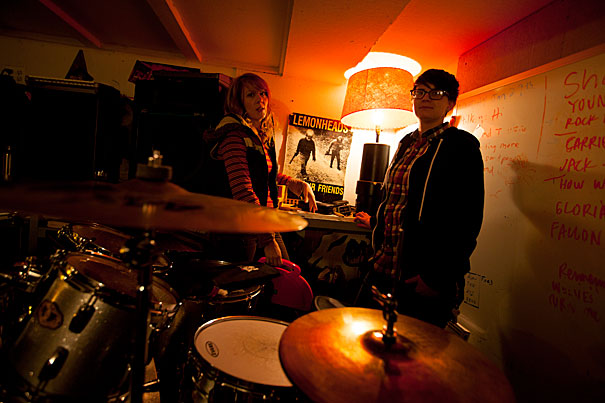
-
An ancient statue, re-created
Harvard’s Semitic Museum is employing a high-tech response to the destruction of 3,300-year-old figures, using 3-D scanning to repair a ceramic lion that was damaged by the Assyrians.
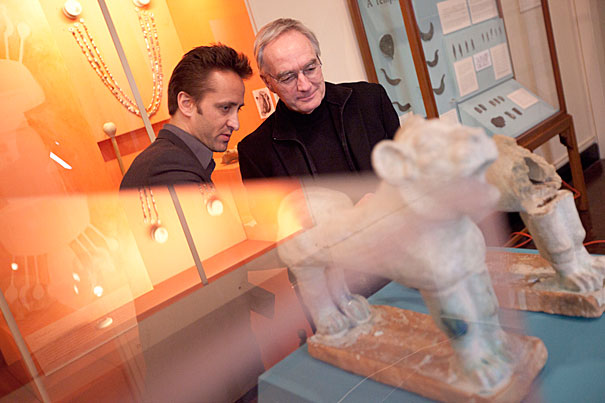
-
Lincoln’s dimensions
Screenwriter and playwright Tony Kushner sat down with President Drew Faust to dissect Abraham Lincoln’s legacy and talk history, politics, and writing after a Harvard-sponsored screening of his new biopic, “Lincoln.”
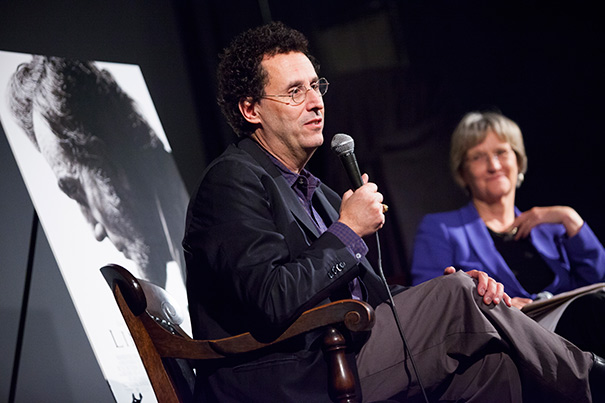
-
Apocalypse now? Hardly
During a sometimes tongue-in-cheek lecture on Wednesday, Professor David Carrasco discussed the historical origins of humankind’s periodic preoccupations with the apocalypse.
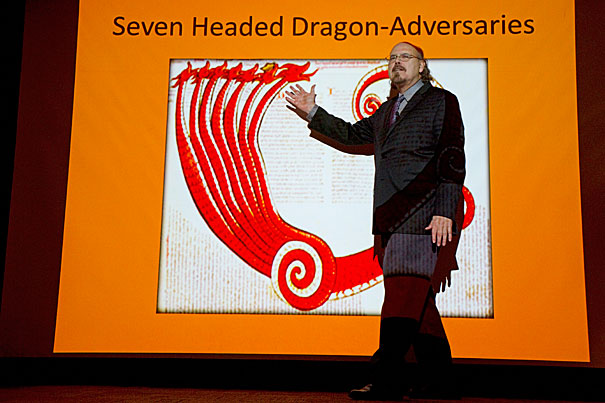
-
Shadow and substance
Harvard alumnus T.S. Eliot published 10 poems in the student-run literary magazine The Harvard Advocate between 1907 and 1910, including the one below.
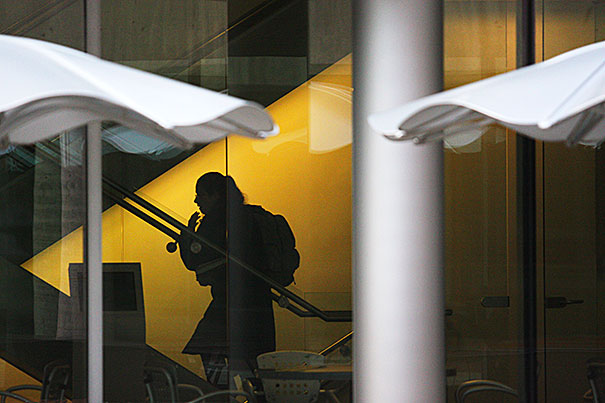
-
Disruptive music
Harvard Professor Ingrid Monson during a fellowship at the Radcliffe Institute for Advanced Study is exploring the music of Malian Neba Solo.
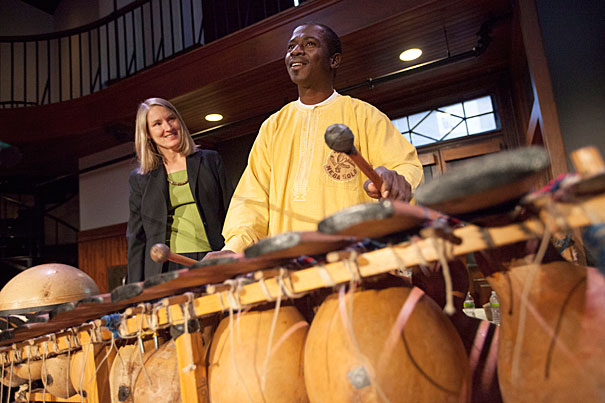
-
To understand, make a map
“Cartographic Grounds,” an exhibit of new and old mapmaking at the Harvard Graduate School of Design, intends to inspire a new generation of designers to draw, with precision, what they see, and to present, with art, what they imagine.

-
Note taking in a clickable age
A recent Radcliffe symposium explored the history and future of note taking.

-
Poetry in the making
David McCann, the Korea Foundation Professor of Korean Literature, is spreading his love of sijo, a poetic form.
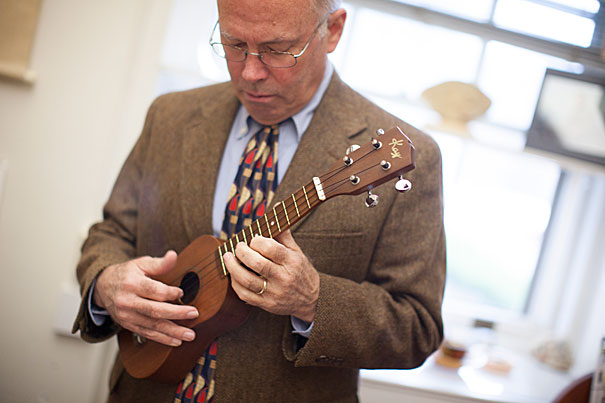
-
Creating a whole from fragments
A show by artist Maria Magdalena Campos-Pons, which examines issues of family and the Afro-Latin experience in America, opened Thursday at the Neil L. & Angelica Zander Rudenstine Gallery in the W.E.B. Du Bois Institute for African and African American Research.
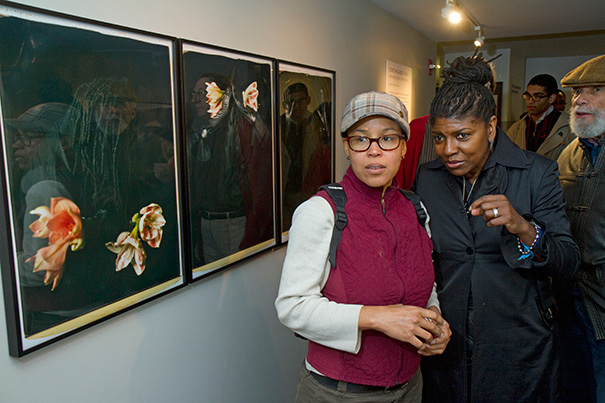
-
Exorcising the curse of knowledge
Author Steven Pinker told a packed audience what is wrong with so much academic writing: It’s filled with abstract language, clunky transitions, clichés, “zombie nouns,” and “compulsive hedging.”
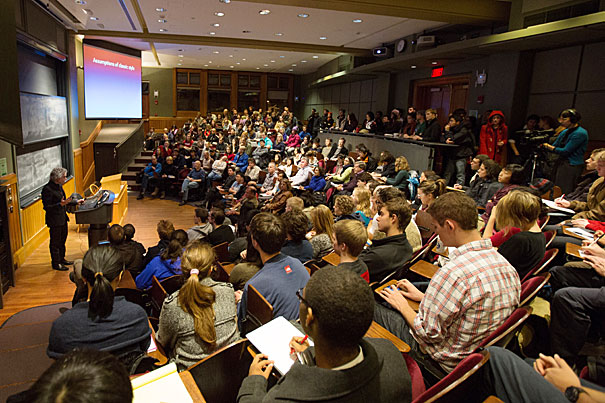
-
A collection unlike others
Harvard’s newly acquired Julio Mario Santo Domingo Collection is the largest of its kind in the world, centuries of art, literature, and popular culture artifacts related to the chief avenues to altered states of mind: sex and drugs.
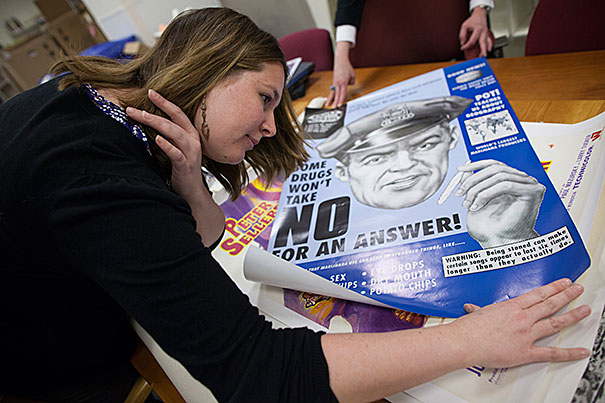
-
When jazz was king
Three local jazz figures came to Harvard to explore their passion for the music and its future as a singular American art form.
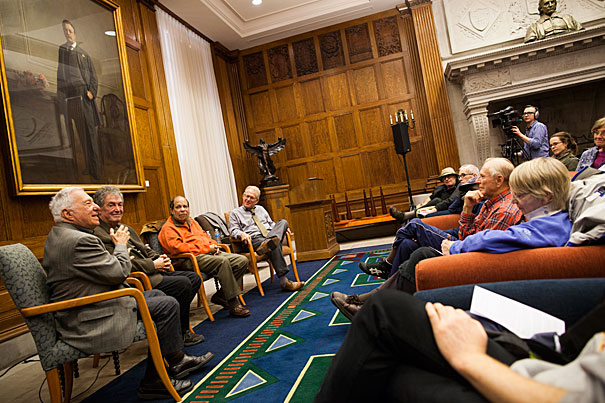
-
The art of the possible
Artist Kerry James Marshall’s massive woodcut print, on view at the Arthur M. Sackler Museum, challenges the artistic status quo.
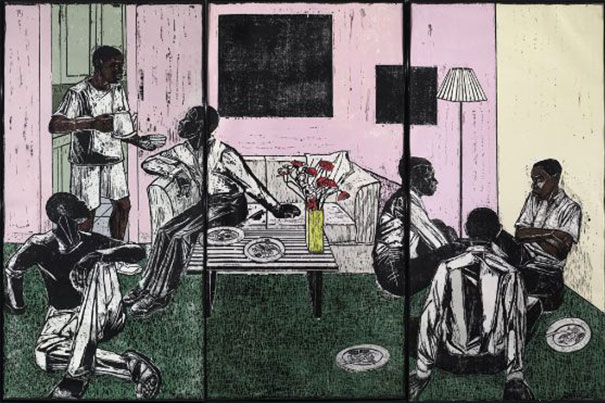
-
The designing woman
Radcliffe graphic designer Jessica Brilli does what she loves and loves what she does, using her artistic talent in her personal and professional life. A reception will be held Nov. 8 from 5:30 to 7 p.m.
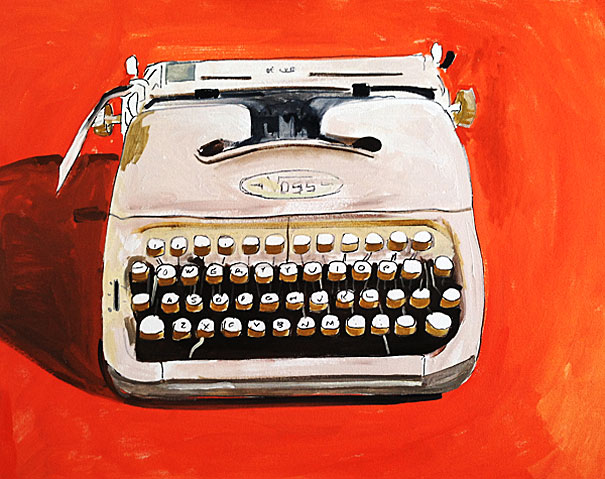
-
Found in translation
French historian Roger Chartier, whose work examines the history of books, publishing, and reading, explored the creation of literary archives and the appearance in the 1750s of authorial manuscripts during a talk at Radcliffe. “Take Note” will “consider the past and future of note taking on Nov. 1 and 2.
